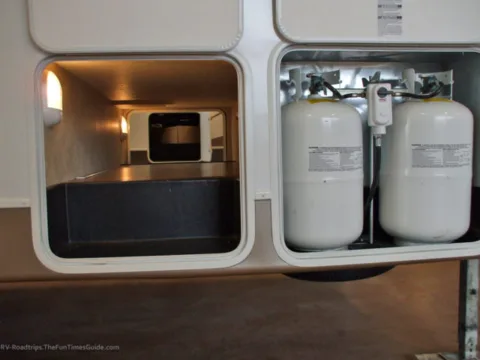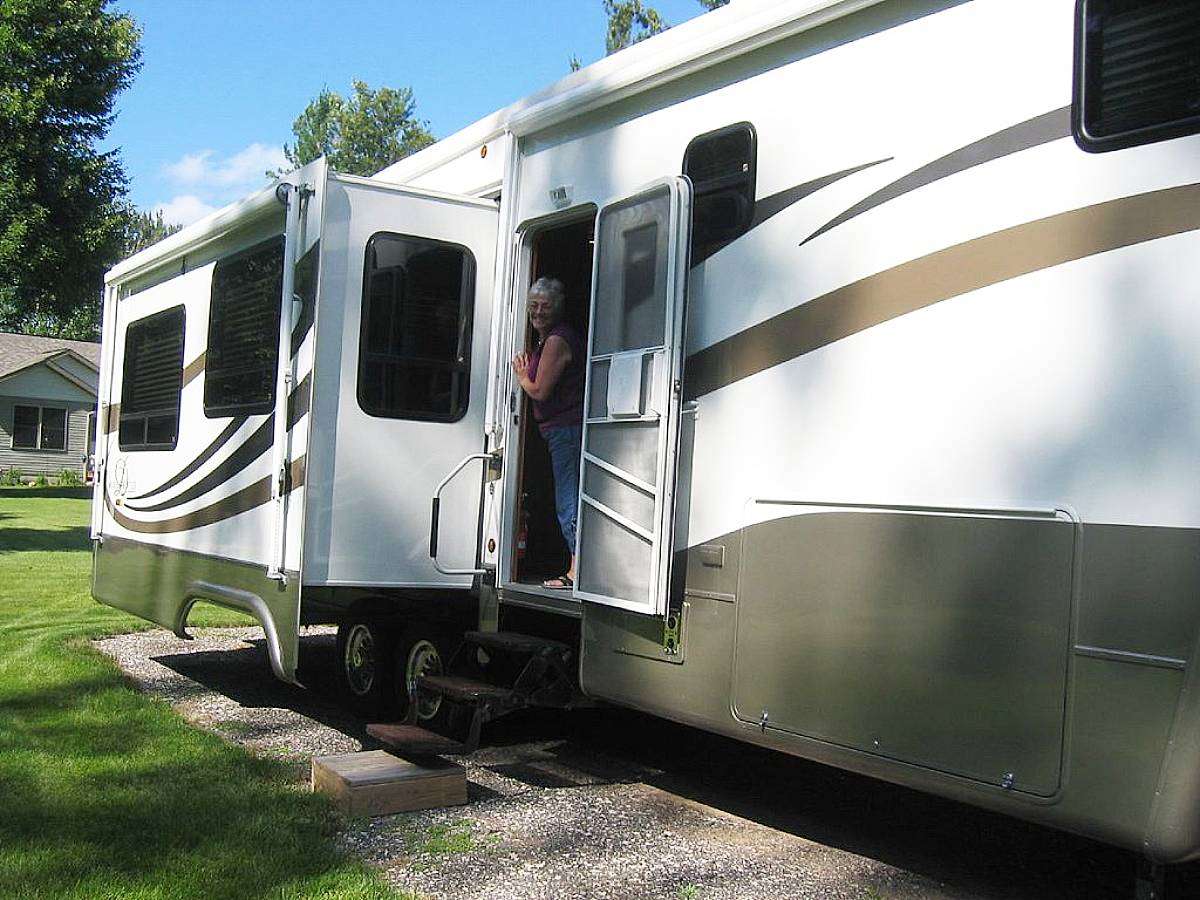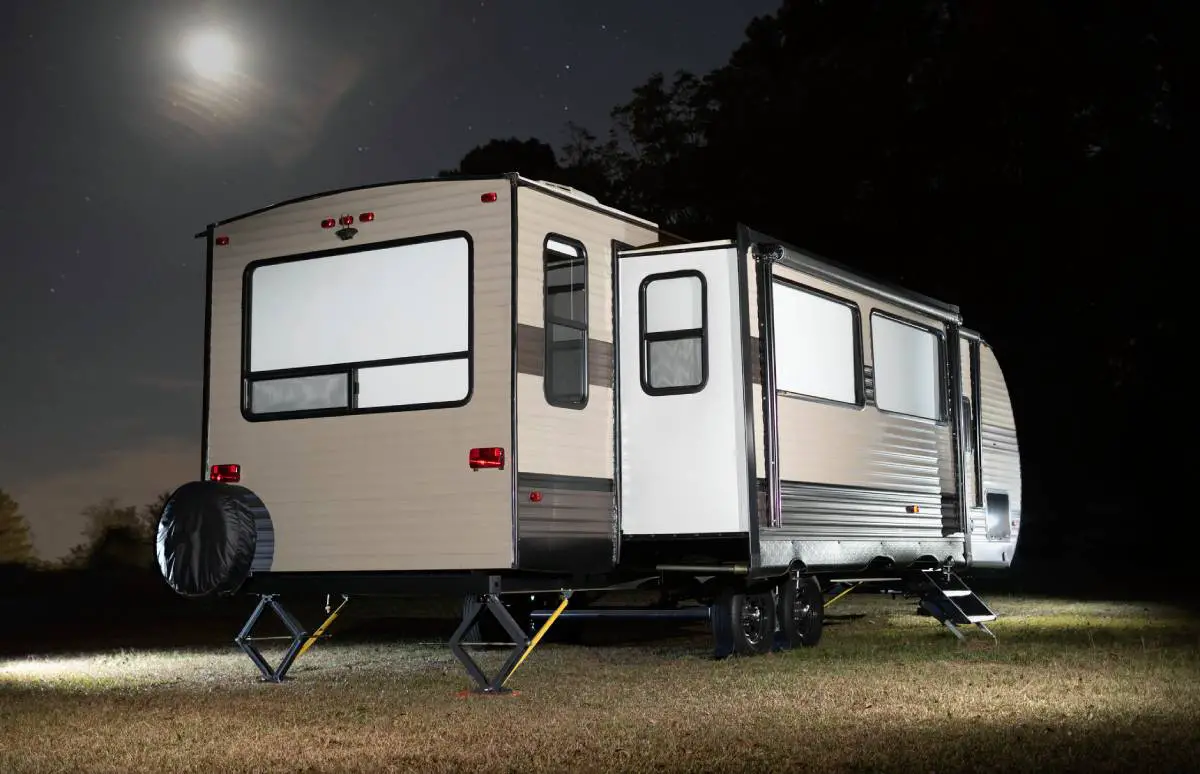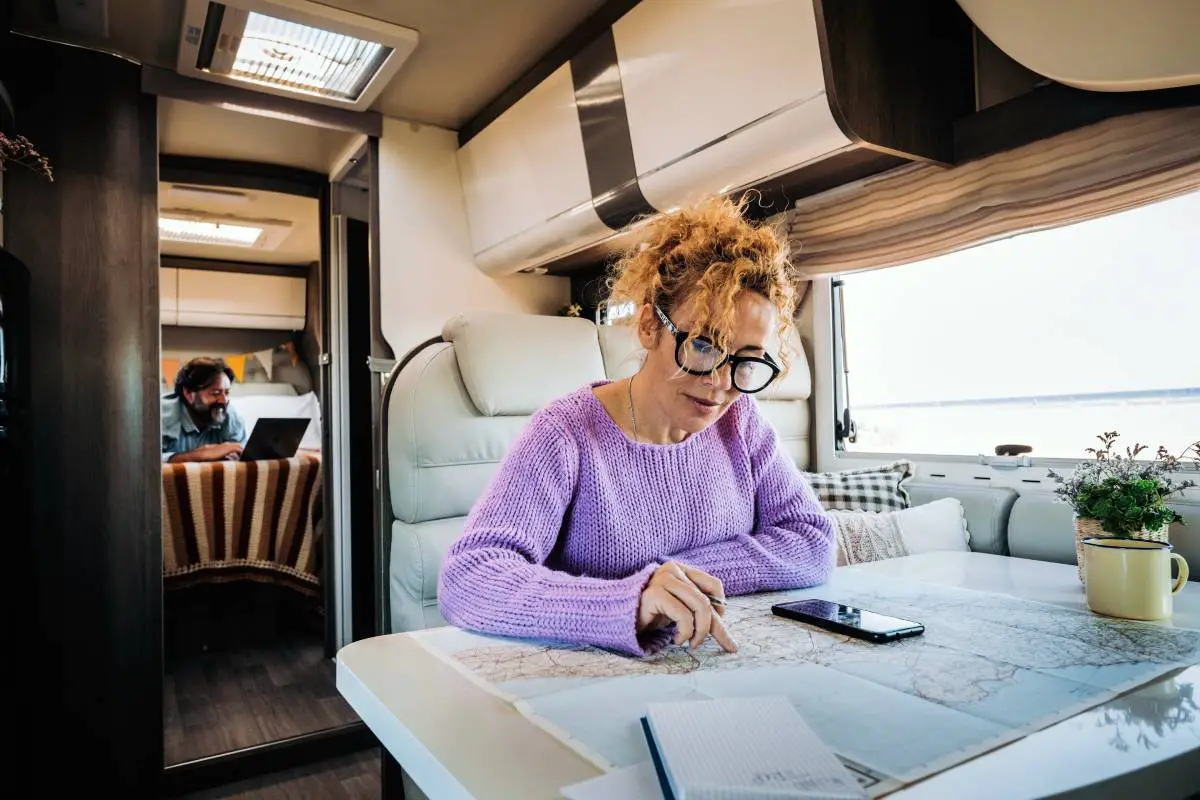For years, propane has been heavily advertised as a clean, efficient, safe way to heat your home.
- It’s a clean fuel.
- It’s usually cheaper than gasoline.
- It’s available almost everywhere.
- There is no shortage of it — it will be available for many years.
- With normal precautions, propane is very safe to use.
Otherwise known as LP (liquid petroleum) or LPG (liquid petroleum gas), propane is the most versatile alternative power source for your RV. Without it, today’s RVs would be rather impractical.
The most common use of propane on an RV is to provide a way to cook meals. Though in most recreational vehicles, it does so much more!…
RV Propane Uses
Every RV is set up with a different combination of power sources — including propane (LP gas), diesel, solar, and electric (shoreline power).
Propane is one of the most popular alternative power sources for RVers.
Today’s RVs, regardless of size or class, make use of propane in many ways.
For example, beyond cooking, propane also:
- provides hot water for dishes & showers
- refrigerates your food
- provides warm air heat to keep you cozy and comfortable
Most RVers use a combination of propane and electricity to run their appliances. The goal is typically to use electricity whenever there are hookups nearby, and to use propane when there aren’t.
If you’re into longterm boondocking, (living off-the-grid without services), then propane can even do more for you!
RV Propane Facts
Most generators can be converted to operate on propane (even portable generators).
Taking your empty propane cylinders to town for refilling is so much easier then messing with gas cans and pouring dangerous flammable liquids. Propane is clean with much less potential for fire or explosion.
The forced-air furnace in your RV can be supplemented by a propane catalytic heater which burns even cleaner, uses no electricity, and is overall more efficient than your standard furnace. Just make sure that your catalytic heater has an automatic low oxygen shut down feature and that your space has adequate ventilation. Here are more tips for safely using an RV catalytic heater.
With an Extend-A-Flow kit coupled into your RV propane system, you can hook up to a portable gas grill and do your cooking outdoors. I use both a grill and a 3-burner portable propane stove when I camp, so the cooking mess is seldom taken into the RV itself. After all, we’re there to enjoy the outdoors, so why cook inside?
An Extend-A-Stay hose kit lets you hook up a portable tank to your house propane tank. This prevents you from having to move your motorhome to continue staying set up when you need more propane.
A few years back, the installation of overfill protection device valves became mandatory on all portable propane tanks. The purpose of the OPD valve is to prevent too much liquid propane from being placed in your tank. Your appliances are designed to run on gaseous propane. Before the propane leaves the tank, there needs to be adequate room to allow it to revert back to a gas. The OPD makes sure that’s possible by closing the fill valve at the point required to protect that space in the tank.
If you’re looking at a used RV, make sure the tanks have been converted to the new style valve. Also, be aware that portable propane tanks must be recertified when it’s 12 years old, then every 5 years after that. This can be done by your local propane dealer. They inspect tanks for rust, damaged valves, dents, or anything that would indicate the tank is not safe to use. The cost to install an updated fill valve will run you about $40, if your tanks are the old style.
Refilling your portable propane tanks (or your on-board propane tank) is simple. Even small towns will have at least 2 or 3 locations that refill propane tanks. Or you could go to any RV dealership, gas station, or RV campground that you pass on the road. Even your local home improvement stores will have an exchange program where you trade your empty 20-pound cylinder for a full replacement one. You pay a bit of a premium for this, but if it’s Sunday afternoon and everyone’s waiting for hot dogs and bratwurst, then you’ve got to do what you’ve got to do!
Current RVs are built with protective sensors for everything. There’s one for smoke, one for carbon monoxide, and there’s even a sensor to detect leaking propane — it’s a safety feature that’s plumbed right into your propane system. If it detects the presence of propane gas, it will close a valve and shut down the supply of propane to the RV.
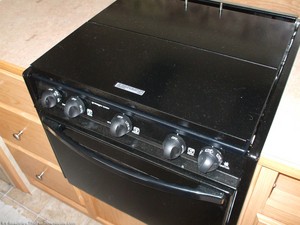 Many stovetops in RVs have knobs that operate opposite to what we are used to. If you turn the valve all the way clockwise, you’re actually putting the burner on “low” rather than shutting it off. I made this mistake once and almost damaged the painted stovetop cover by closing it when the burner was still burning slightly. If you left the knob in this position without the burner lit, it would slowly pump propane into your RV until the safety valve shut down the system.
Many stovetops in RVs have knobs that operate opposite to what we are used to. If you turn the valve all the way clockwise, you’re actually putting the burner on “low” rather than shutting it off. I made this mistake once and almost damaged the painted stovetop cover by closing it when the burner was still burning slightly. If you left the knob in this position without the burner lit, it would slowly pump propane into your RV until the safety valve shut down the system.
When it comes to problems with the LP system in your RV, the most common failure will be the regulator. Located at the propane tank, it takes the high pressure gas coming from the tank and lowers the pressure to what is required by your RV appliances. Inside the regulator is a rubber bellows that moves back and forth. Over time, with continual movement and exposure to the elements, regulators do wear out. You can expect to get about 10 years out of a regulator. When it does fail, it can’t be rebuilt — it must be replaced.
Whenever you work on your RV propane system, be sure to test any connections you have disturbed by spraying soapy water on them while under pressure. Never use a flame to test for a leak! An explosion may be the result if there is, indeed, a propane leak.
https://www.youtube.com/watch?v=eMSeut_PaeE
More About RV Propane Systems
In addition to the links I’ve included above, here are some other resources to help you use propane safely on your RV:
- RV Propane Tips That Could Save Your Life
- Is It Safe To Drive With The RV Refrigerator On Propane?
- RV LP System Do’s & Don’ts
- Tapping Into The RV’s LP System For An External Grill
- RV Propane Management
- An RV Generator Buyer’s Guide
I’ve been involved in RVing for over 50 years — including camping, building, repairing, and even selling RVs and motorhomes. I’ve owned, used, and repaired almost every class and style of RV ever made. I do all of my own repair work. My other interests include cooking, living with an aging dog, and dealing with diabetic issues. If you can combine a grease monkey with a computer geek, throw in a touch of information nut and organization freak, combined with a little bit of storyteller… you’ve got a good idea of who I am. To date, I’ve shared my RV knowledge in over 300 articles here at The Fun Times Guide! Many of them have over 25K shares.

